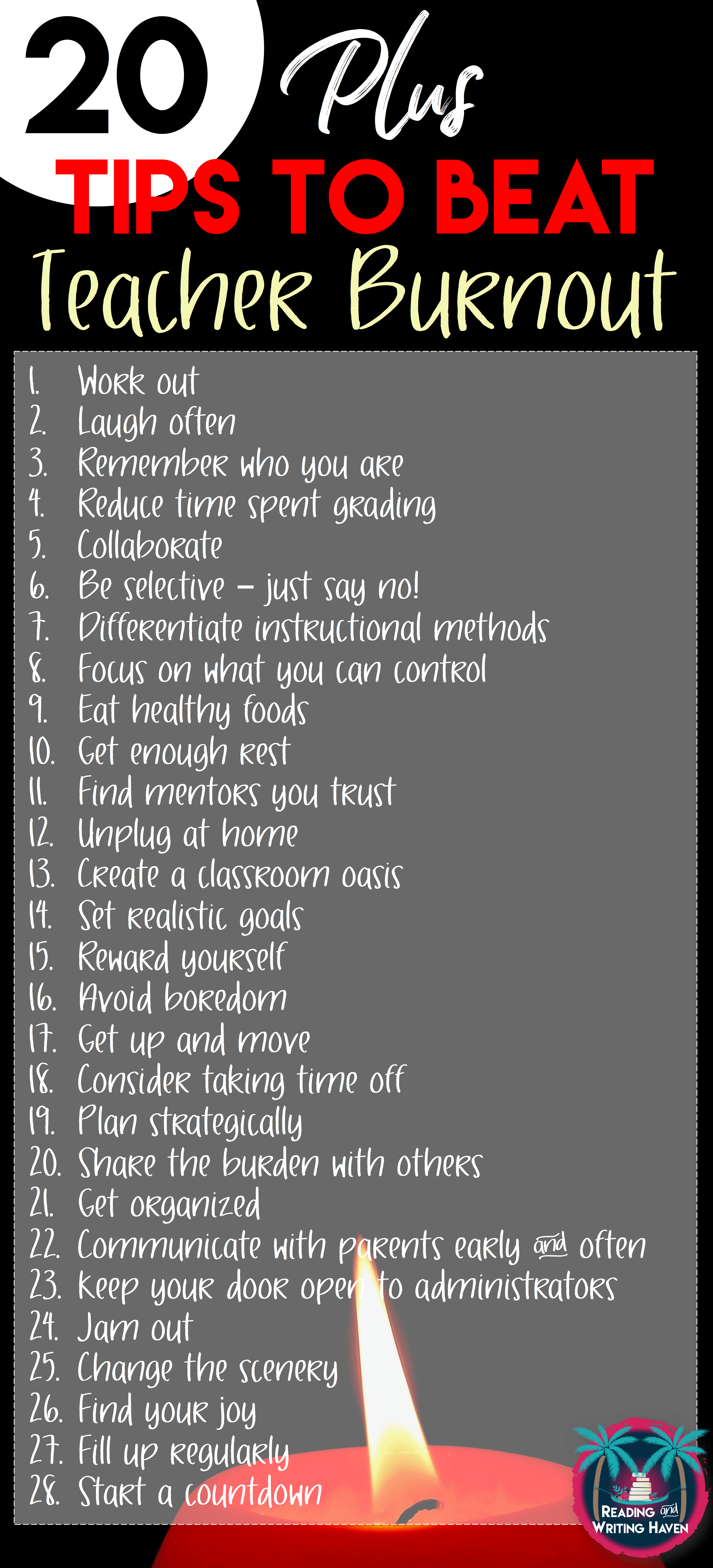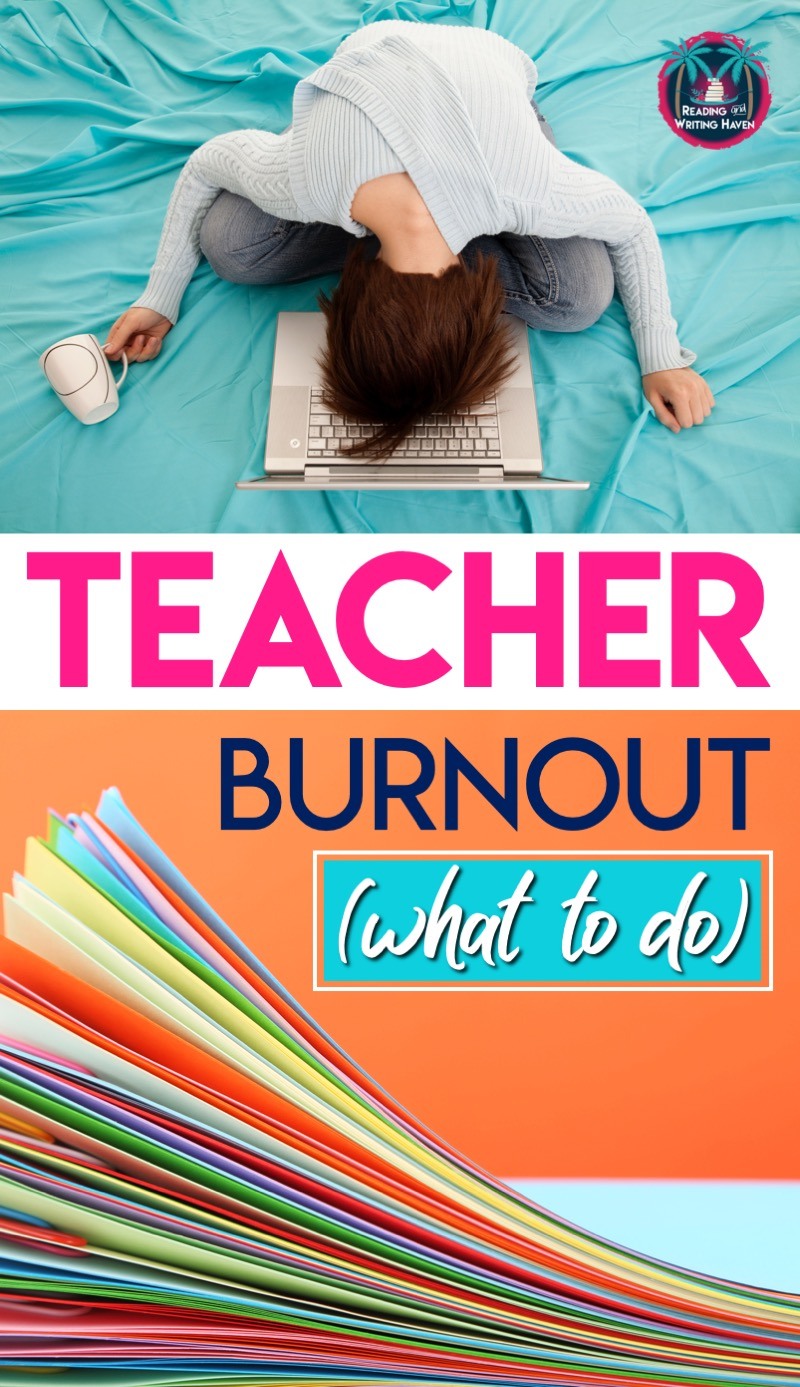Are You a Burned Out Teacher Quiz Funny
Feeling overworked, underpaid, or undervalued? You're not alone. Teacher burnout is the pits. It happens to the best of us. In my experience, it usually happens in the middle of the year. January and February seem to be the worst. It's so easy to get stuck in a funk and wonder why you ever went into teaching in the first place. The stresses involved in teaching are innumerable. Pair that with teachers' passionate, selfless, servile nature, and it's no wonder so many people leave the profession.
It's Not Avoidable…
Search the internet for teacher burnout, and many results have to do with avoiding it. Yet, is it avoidable? Anyone who has been in the teaching profession long enough will experience it to some degree. Does that make us bad teachers? No! Does that mean we should look for work elsewhere? Probably not.
Instead of talking about how to "avoid" teacher burnout, since I really don't think that's possible with all of the influencing factors of our profession, let's talk about how to beat it when it hits. There are so many options for treating burnout (I guess that makes it sound like an illness, but it kind of is!). Burnout doesn't have to be a career ender. We just need coping strategies.
It would be ideal if there were one "cure" we could pinpoint to solve the issue of teacher burnout once and for all. But, is that a reality? What is the cure? For most of us, it's called summer break. If it's October when you're asking this question, summer break is too far off to be of any comfort, so in this post, I'm sharing my tips for staying sane in the meantime. I certainly am not immune to exhaustion from work…I've had my fair share of experiences where I questioned my longevity in the profession, which is why I want to help other teachers cope with the stresses associated with the career we love.
Solutions…
The tips that follow are what I've found successful at helping me through the tough times. Hopefully, you can find one or two that resonate with your situation and give them a try. Find a free printout and visual reminder of this list here. Put it in your planner, tape it on your desk, share it with your co-workers or staff, or hang it somewhere to remind you of some options you have when you feel those beginning signs of fatigue coming on. Reminders help us put things into perspective.

OVERCOMING TEACHER BURNOUT
1. Work out.
Physical activity improves your mood and helps you focus. If you don't have an hour, just do thirty minutes. If you don't have thirty minutes, do fifteen. Every little bit helps. Even going for a walk is a valuable form of physical activity.
2. Laugh often.
Hang out with people who make you giggle, who help you see the funny side of life. Make it a point to schedule time outside of work to be around people who put you in a good mood.
3. Remember who you are.
For many teachers, the classroom is their life. It's so easy to become completely consumed in our work because, for most of us, teaching is a part of who we are. It's more than just a job. Our passionate personalities work to our favor. However, it also means we can devotetoomuch time and thought to the classroom, which makes everything (parent complaints, lesson planning, grading, test pressure) seem like a lot bigger deal than it actually is. Make time for your non-education related hobbies to help put everything in proper perspective.
4. Reduce time spent grading.
Cut back on the amount of homework and essays you assign. This option might seem like an "easy out," but really, much of what is assigned can be accomplished in more concise, succinct tasks. Do students really need to write six research papers a year when they are freshmen? Probably not. Most likely, they can learn the same amount of information (if not more) through scaffolding of shorter writing assignments that lead up to longer ones. Should we really require written homework every single night? Again, probably not. You can read my blog post about ideas for grading writing faster for more ideas.
5. Collaborate.
When teachers work together to lesson plan and create resources, the pressure from time spent crafting ideas and products is alleviated, and the materials are usually better quality because teachers are able to focus on a smaller task. Think about it. You could create one solid assignment in the same amount of time it would take you to make ten mediocre ones. Teachers Pay Teachers is an amazing bank of resources. After all, time is money.
6. Be selective when sponsoring activities or taking on leadership roles.
Teachers are doers, and generally, we are social beings. We like to be involved and to help. It's in our nature to be servants. Still, to avoid burnout, it would be beneficial to select one or two extra activities to sponsor rather than ten. You can devote more quality time to the activities you are leading, and you will enjoy your time more. Dipping your hand in too many cookie jars can lead to exhaustion.
7. Differentiate instructional methods.
Cut back on lecture time and worksheets. Instead, use refreshing, student-centered activities and learning opportunities. Web quests, research projects, stations, student presentations, doodle notes, flipped classroom units, games, and multi-genre projects are just a handful of examples of how putting kids in charge of their learning can lead to increased accountability and growth for students while reducing stress and burnout for teachers.
8. Focus on what you CAN control.
Too often, we get swallowed up in thoughts of negativity and worry regarding everything wecan'tcontrol. These thoughts swirl in our head and impact our overall mood, dampening our view of our profession as a whole. Take each day at a time, and focus on what makes you and your students enjoy learning.
9. Eat healthy foods.
It will improve your mood. Pack some vegetables, fruits, and nuts for snacks and a healthy lunch, and leave your cash at home. I've always found this a successful way to avoid purchasing a slice of pizza, cookie, and juice or soda from the school cafeteria.
10. Get enough rest.
Sleep deprivation can affect your memory, judgment, and mood. Teachers need to be on our "A" game when it comes to these factors in order to beat the tendency for burnout.
11. Find mentors you trust.
When I began teaching, I didn't realize how important it was to surround myself with people I could confide in who were experiencing the same issues as me. Actually, I thought it was a sign of weakness or novice to admit that I was stressed and overwhelmed. After over a decade, I know I was totally wrong about that. Surround yourself with people who will reaffirm your value and worth. If you can't find that validation at your workplace, connect with others through professional communities elsewhere…in person or online.
12. Unplug at home.
Nothing can trigger burnout faster than e-mails that upset us when we are supposed to be relaxing and unwinding, spending quality time with our families at home. Do you really need to have your work e-mail connected to your phone? Is it absolutely necessary to respond to a Facebook thread about a work-related topic or answer an e-mail about a meeting when you are at home? Probably not. Resisting is tough because those "dings" that signal notifications intrigue us. We can't wait to see who is contacting us and why. It's wise to just unplug.
13. Create a classroom oasis.
Make your work environment cozy…somewhere youwantto be. You might not have a huge budget for decorating, but adding small, homey touches can do wonders for your desire to be in your classroom when the going gets tough.
14. Set realistic goals and reward yourself when you reach them.
Sometimes we get burnt out because we have unrealistic expectations for ourselves or for our students. Set the bar high, but not so high that it's impossible to reach. For example, one common source of stress for teachers is negative communication with parents. Set a goal that you want to make one positive parent contact each week. After a set amount of time of making said contacts, reward yourself with a special treat…a mani/pedi, a shopping trip, a new book, an ice cream cone, new grading pens, etcetera.

15. Avoid boredom.
Nothing spells burnout like boredom. Keep lessons fresh by trying new approaches and strategies or by teaching a different class or grade level. Having the same prep every year is easy in some respects, but it can also lead to redundancy and fatigue.
16. Guide your mouth to guard your heart.
Steer your mind in the direction of positive, helpful talk and thinking.What you say and think becomes internalized, so instead of focusing on how much youhate your job right now, focus on the positive aspects. Choose not to join in the negative banter that takes place so often.
17.Get up and walk around.
Being sedentary can result in negative moods and reduced energy levels. Get up from your desk, walk around the room regularly, and leave your classroom between periods. Help supervise in the hallway, go to the restroom, walk to the drinking fountain, or say hello to a co-worker. Getting out of your room and away from your computer screen will remind you that there are other things to focus on than lesson planning, grading, and student behavior issues, among other duties that you may not necessarily enjoy.
18.Consider taking time off.
Maybe it's just a mental health day. Perhaps it's a personal day to do something for yourself. Maybe you just had a child! Consider taking a year off during the time of sleepless nights and diaper changes to spend time with your little one and recover. That's certainly not the choice for everyone, but many people are unaware it's even an option…look into your employment contract, if you're interested. You might be surprised. Whatever the situation is, however long the duration, time off can rejuvenate your spirit.
19. Plan strategically.
Whenever possible, structure units so that periods of heavy instruction or heavy grading are followed by those of the opposite nature. If you've just collected a huge stack of research papers to grade, maybe students can present their research to their peers to reduce any additional grading pressure, for instance.
20. Don't carry the weight of the world on your shoulders.
We invest so much of ourselves into our jobs, but realistically, we are but a drop in the bucket in our students' lives. Everything seems like a huge deal in the moment, but if 80% of our students do not show growth from pre-test to post-test, let's not be so hard on ourselves. We are only one factor in the equation.
21. Get organized.
If you are the least organized person you know, think about recruiting someone to help you. Everyone knows someone who would alphabetize the food in their refrigerator if it made sense to do so. Get that person to help you organize your classroom. A disorganized classroom can, sometimes unknowingly, lead to stress and burnout for teachers.
22. Communicate with parents early and often.
By doing so, you can avoid unexpected issues and unwanted surprises. This is easier said than done, but setting goals and slowly plugging away at them is a great strategy. At the beginning of the year, I try to call or e-mail one parent each day.
23. Keep your door open to administrators.
Much teacher stress comes from the evaluation system. You can relieve some of that pressure by building a good basis of communication with your administration. Invite them into your classroom on days when you have a lesson planned that truly reflects who you are as a teacher. This approach puts the ball in your court and allows them to observe you in action on your terms on more than one occasion.
24.Jam out.
It's really hard to be grumpy and pessimistic if you're listening to uplifting music. If you're feeling the beginning signs of burnout, it's time to turn on the tunes and sing (or not sing). Turn it in to a fun analytical activity with students using this free download.
25.Change the scenery.
Find a reason to hold class outside (weather permitting). Take students to a different area in the school (library, gymnasium, auditorium, etcetera). Changing the location of your class for a day can do wonders for your mood.

26. Find your joy.
I once had it explained to me like this: Joy is the place between thankfulness for what you have and hopefulness for what is to come. That totally resonated with me. Consider this metaphor: Joy is summer. During summer, teachers are thankful (either that the dreaded school year is over or that they had a successful year) and hopeful for the opportunities, experiences, and students they will have when they return in the fall. We need to situate our minds in a perpetual state of summer. There is always something to be thankful for; likewise, there's always something to hope for.
27. Fill up regularly.
What renews your soul? Do it often. For me, it's going to church and getting in the Word daily. It's amazing how many times I'll be reading or listening to a sermon, and I think, Wow, this totally speaks to my situation at work right now. I've stumbled across insight to help me put issues into perspective and cope with feelings that are exhausting me on many occasions.
28. Start a countdown.
There's something liberating about knowing youonly have ten days until…Christmas break, spring break, or summer break. Keep a countdown, and every day, congratulate yourself on being one day closer to a mental health vacation!
If none of these ideas fit your situation, a simple Google search will reap even more results to combat the dreaded burnout syndrome. For some people, leaving the profession is truly the best option. For most, however, readjusting our teaching approaches and re-examining our educational philosophy is enough to remind us what we love about teaching and get us through the year.
How about you? What tips can you offer others who are struggling to make it through the school year? Share in the comments. We'd love to learn from you.
Source: https://www.readingandwritinghaven.com/how-to-beat-teacher-burnout-practical-tips-to-try-today
0 Response to "Are You a Burned Out Teacher Quiz Funny"
Post a Comment